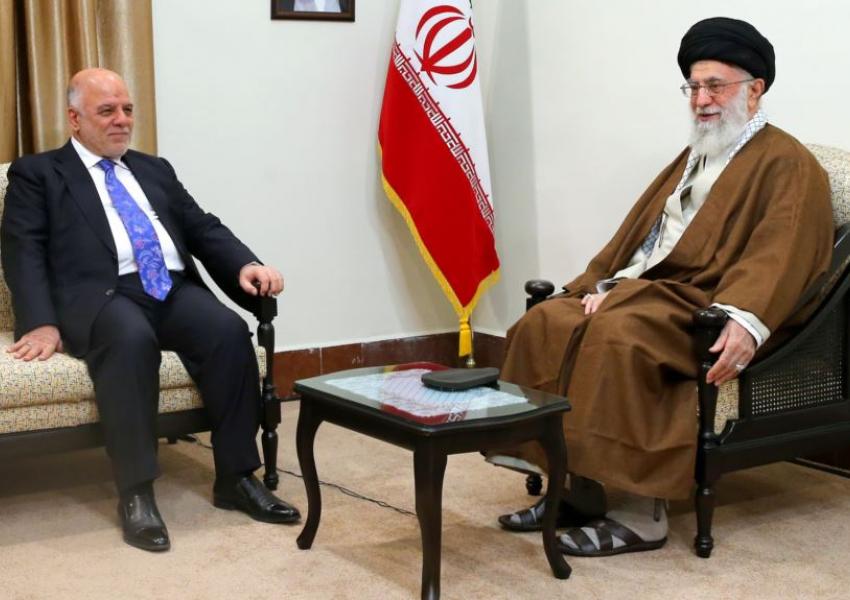
Iraqi President Visits Tehran Amid the 45-day U.S Waiver
The president, in the Iraqi system of government, is a formal role and the real power is held and exercised by the prime minister. However, due to the inability of the prime minister to form a government so far, Barham Salih, the new president of Iraq, planned visits to five countries in the Middle East to discuss bilateral and regional issues.
As it happens, one of the reasons for these travels is to request Saudi Arabia and Iran, as the influential states of the region, to let the Iraqi government get formed, especially considering the devastation of the country after the war with ISIS. It has already been five months since general elections in Iraq, but there are no signs of a new government being formed anytime soon.
As the elected parliament has failed to form a government because of the meddling by the regional powers, Salih is seeking help in his trips to Kuwait, UAE, Jordan, Iran, and Saudi Arabia. The Iraqi prime minister’s frustration is caused by, on the one hand, regional competition between Saudi Arabia and Iran, and on the other, the superpowers’ interests in Iraq, such as the US. They all created a situation very similar to what Saad Hariri, Lebanon’s prime minister, went through just a few months ago.
There is another reason which adds to the significance of this trip. For one, Salih knows that his country needs reconstruction and there are unrests around the country because of the statemen’s incompetence. For the other, Iraq has received a waiver from the US to find a substitute for Iran, as a trading partner, within 45 days to supply its basic needs. At the moment, Iraq depends on Iran for the supply of electricity and gas for some of the Iraqi cities. Consequently, Iraq is faced with a serious dilemma; if it wants to back American sanctions on Iran, this will hit Iraq hard in terms of shortage of some essential goods, and if it continues to depend on Iran, it is likely to get punished by the US.
Trump administration stated that it would give a few countries, including Iraq, a short deadline to adapt themselves with the sanction regime.
Having argued that it is impossible for a 12b $ trade relationship to vanish at once, Iraq was given a 45-day waiver by the US administration. Iraq has entered negotiations with others, especially Saudi Arabia, to import electricity and it is rumoured that Riyadh has offered them very generous prices in an act to oust Iran.
The urgency of this whole situation made Haider al-Abadi, Iraq’s former prime minister, to say that “Baghdad does not agree with the sanctions on Iran, but we will have to comply with them for the sake of Iraqi people”.
Such statements turned out to be costly for him and he lost his job eventually. Pro-Iran militias organized widespread protests against him which led to Iraq’s national security council to interfere and claim that Abadi’s comment was misunderstood.
This made the new president of Iraq change tone in his press conference with Rouhani, the Iranian president, and stated that Iraq is an independent country with respect to the US-Iran conflict and would not support either side. The same statements have been made by Ammar al-Hakim, Hadi Al-Amiri, and Muqtada al-Sadr.
Such a stance is expected to be taken by the president or Muqtada al-Sadr (no fan of Iran), but hearing the same from Amiri, the head of the Badr Organization and one of the commanders in Popular Mobilization Forces (close to Iran’s IRGC), is very unexpected. No one can accept that a person like Amiri could be impartial or indifferent in the US-Iran conflict.
Hence, I assume that the Iraqi president’s stance is out of the necessity and not willingness in pursuit of not confronting the US. During his presidential campaign and in reaction to Abadi’s promise to comply with the American sanctions on Iran, he promised that “I, as a presidential candidate and a citizen of Iraq, clearly say that Iranians opened their arms to welcome us during our jihad against Saddam Hussein. So undoubtedly, we sympathize with them and would never want them any harm. The sanctions on Iran would affect us too, it won’t be limited to Iran only. Therefore, why not we defend our neighbor, when we have long historical ties with Iranians.”
He has softened his tone after becoming the president and told that Iraq would be impartial in the conflict. But Tehran is not happy with this stance as it was noted in Salih’s meeting with Iran’s supreme leader. Ayatollah Khamenei advised him to retain Popular Mobilization Forces (a replica of IRGC’s Basij forces) and to support other pro-Iran Shia militias.
It is in contrast with one of the 12 conditions that secretary Pompeo set for Iran where he demanded Iran to respect Iraq’s sovereignty and also to help them disarm and dissolve these militia groups.
Clearly, this impartiality approach taken by the Iraqi government has made both Iran and the US unhappy. It is fair to ask: what will happen to Iraq if this approach fails?









